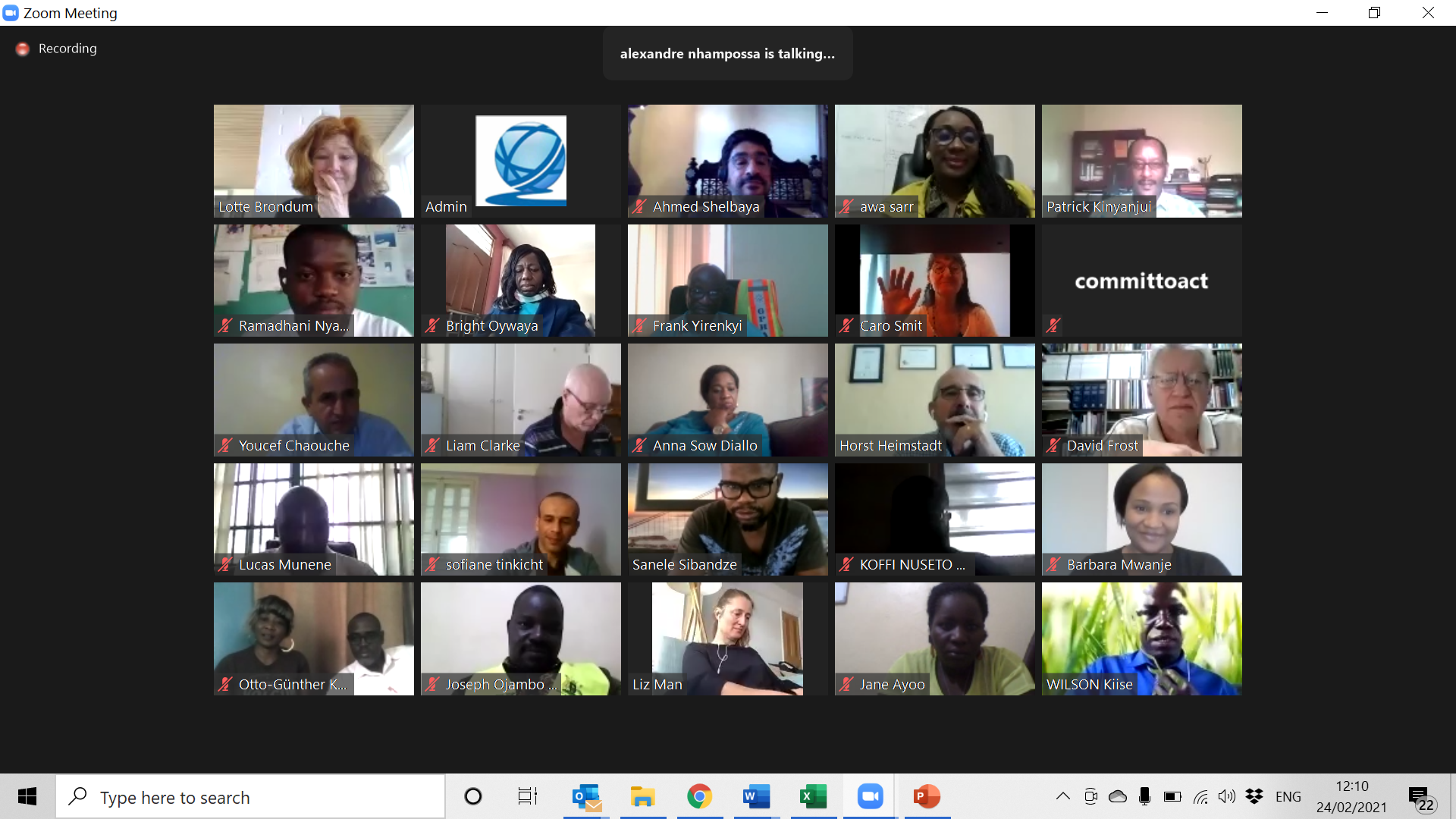
“The Africa Chapter is there to network and build capacity but also to advocate and put governments a little under the heat,” said Ahmed Shelbaya, NADA Foundation, Egypt. “In the next decade, unless we hold governments accountable, we will be meeting in 2030 with similar results to 2020.”
On Wednesday 23 February, road safety NGOs from 25 countries across Africa joined forces at the first annual meeting of the Africa Chapter of the Global Alliance of NGOs for Road Safety.
The Alliance’s Africa Chapter has been implemented as a means of uniting road safety NGOs in Africa more closely, harnessing their joint experience, building their capacity, and amplifying their advocacy voices with their governments.
“One of the problems that we experience is that governments don’t really recognize us. By working together as a group, it gives us a huge advantage,” said Horst Heimstadt, Private Sector Road Safety Forum, Namibia.
The meeting was an opportunity to review the Chapter’s strategy for the next three years, reflect together on how to use the Chapter to advocate more strongly, and plan activities including for the UN Global Road Safety Week to be held in May 2021.
“A lot of the organizations that have made in-roads are people who have coalesced around an idea together – whether you talk about HIV/AIDS organizations or the environment,” said Bright Oywaya, ASIRT Kenya. “You can only make an impact if people realize that there is actually a force behind you. As an individual, you can be listened to but the impact may be very little.”
Awa Ndeye Sarr, LASER International, Senegal, added, “We need laws, we need regulations and we need statements at regional level. We can make local actions, but we won’t get the impact we deserve for all the effective work on the ground, unless we are supported.”
The meeting was held online and was made possible by sponsorship from the Total Foundation and FedEx.